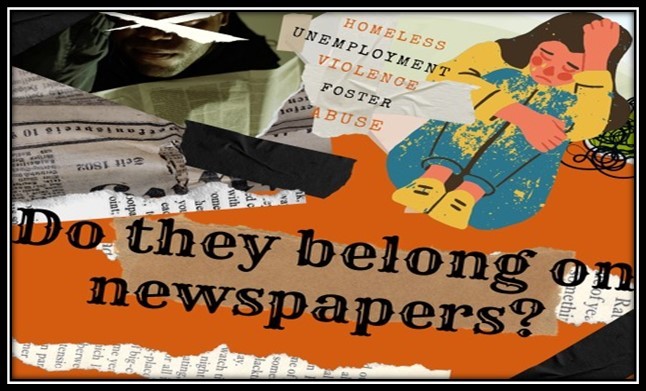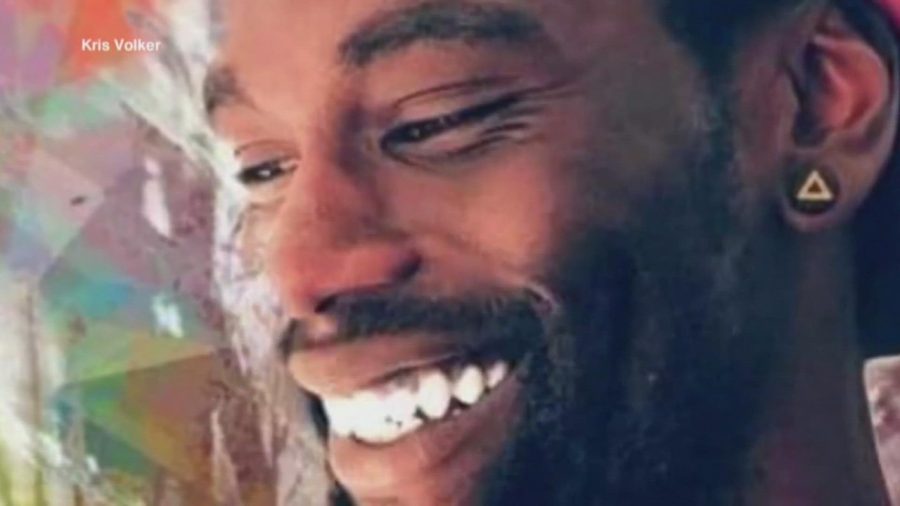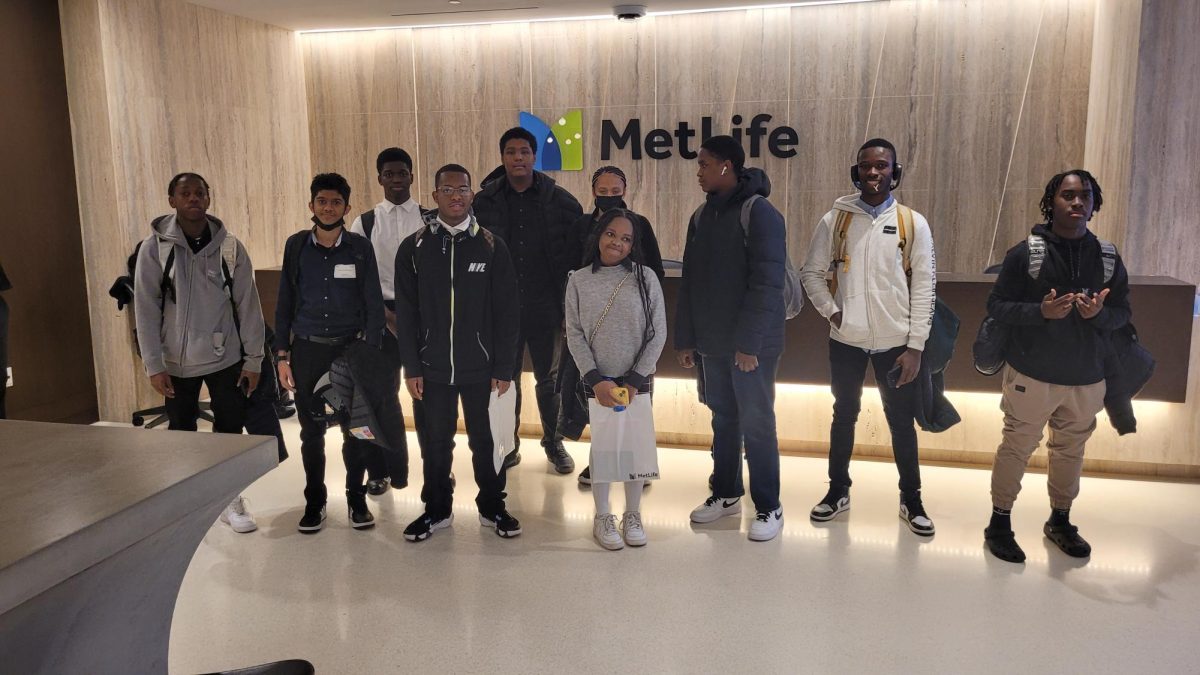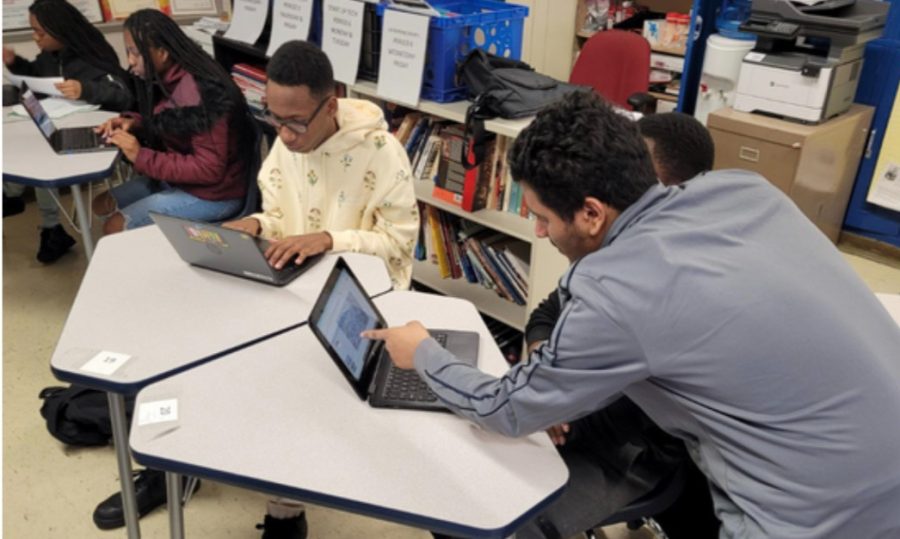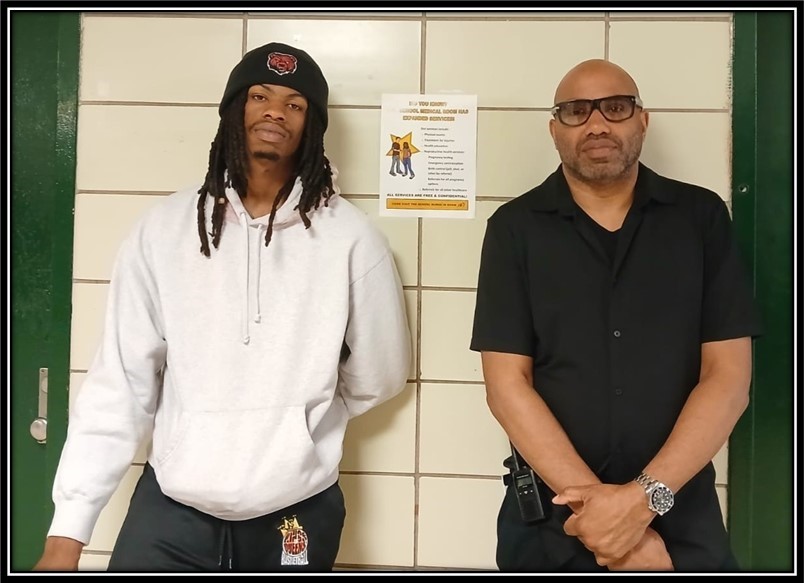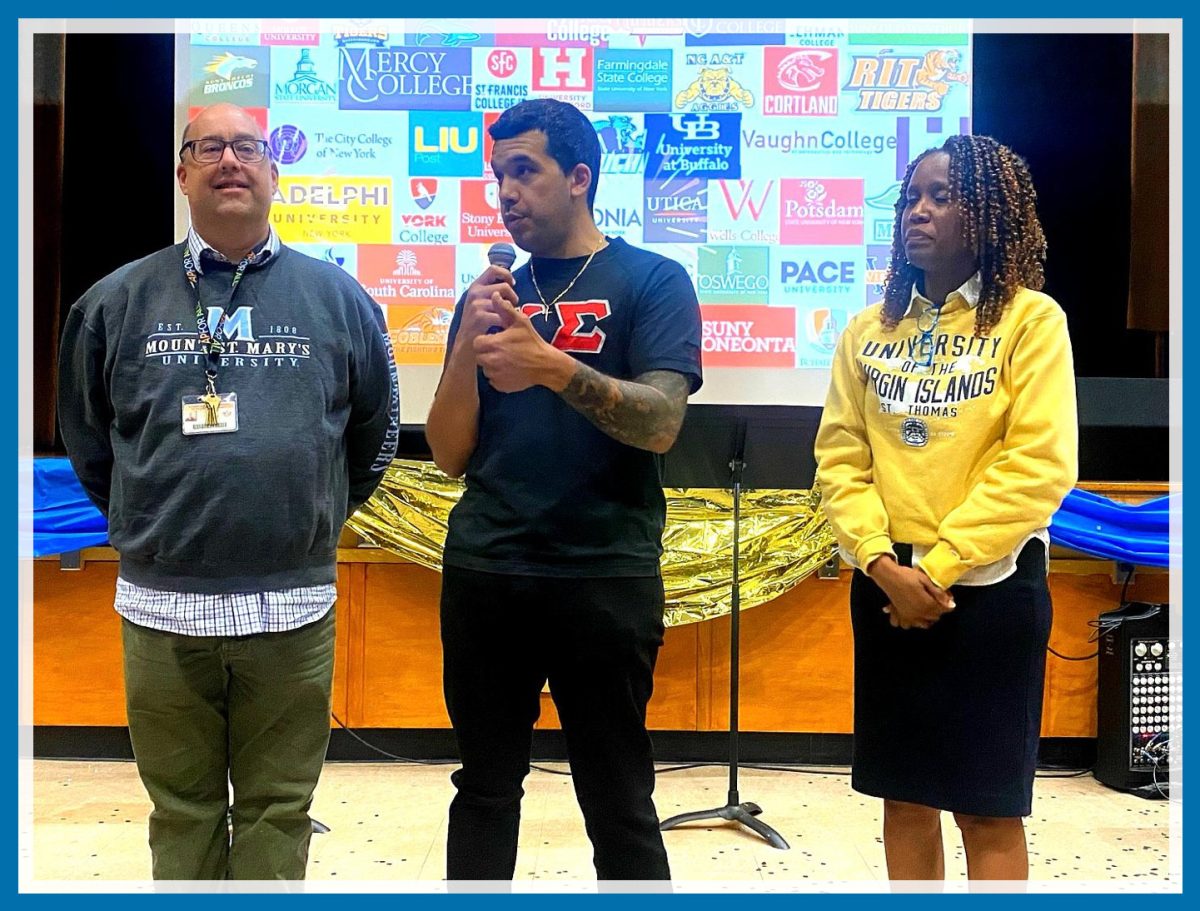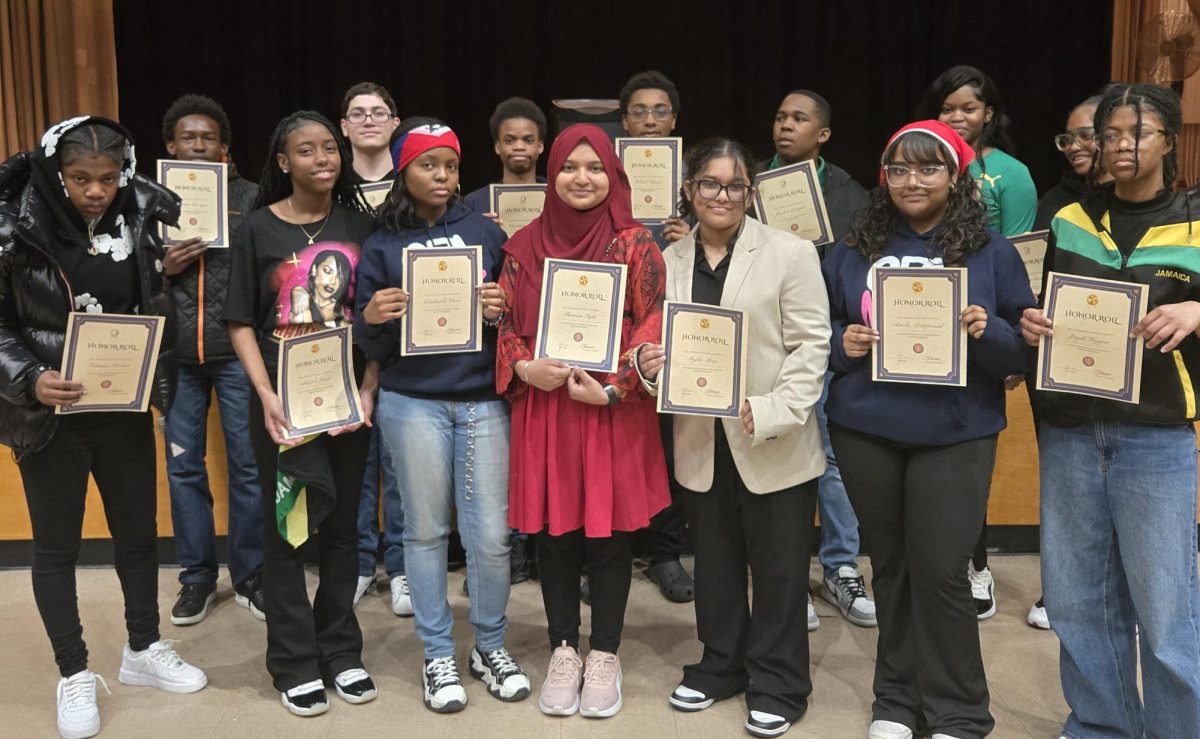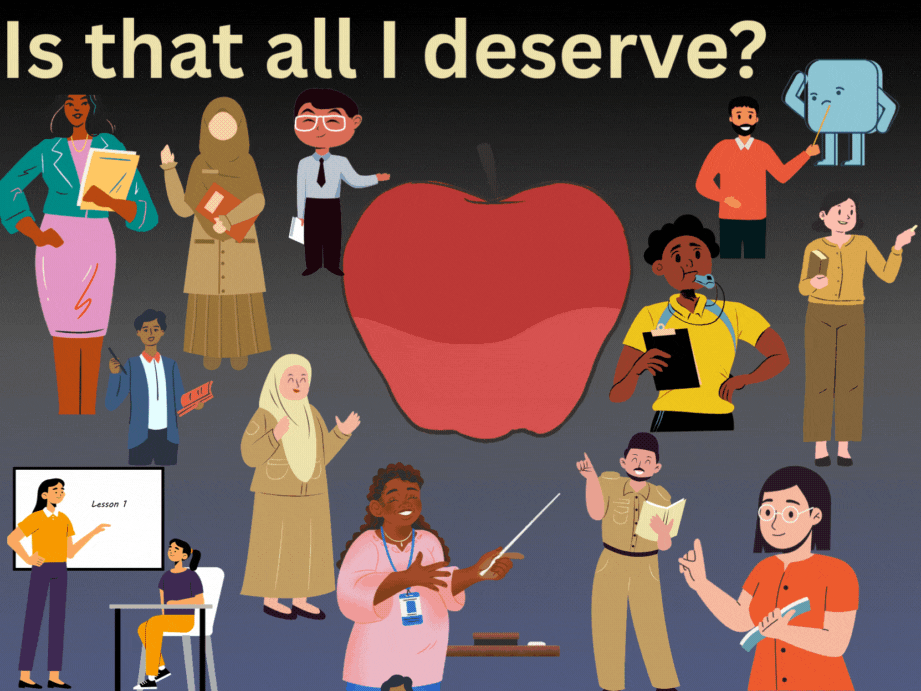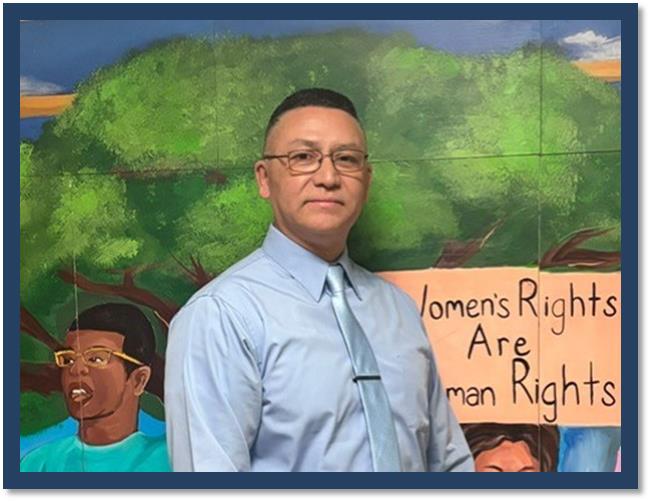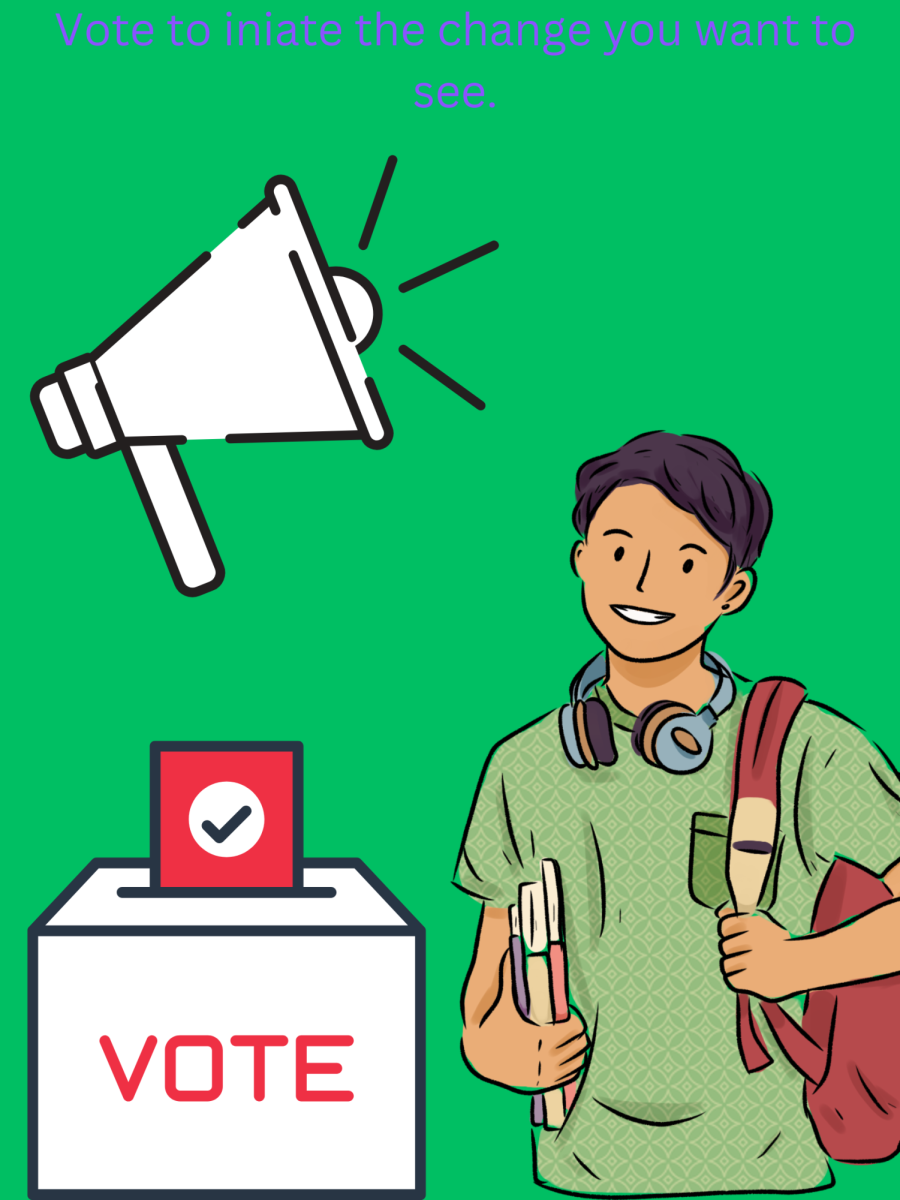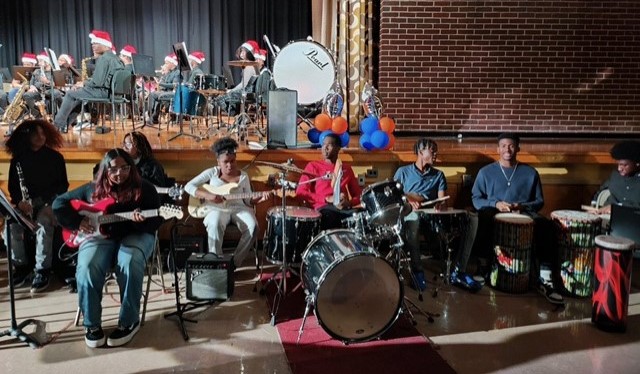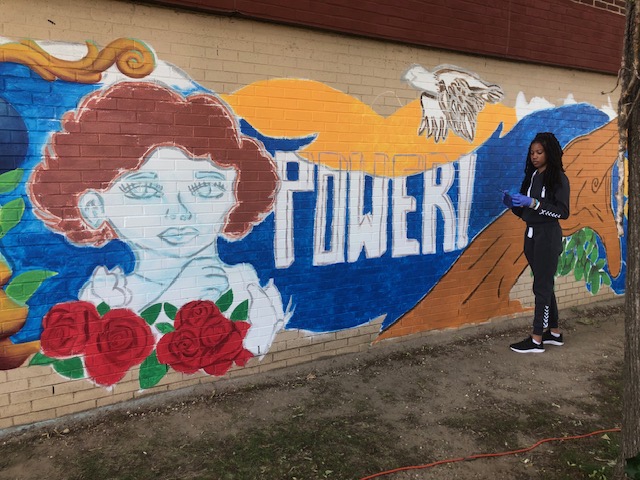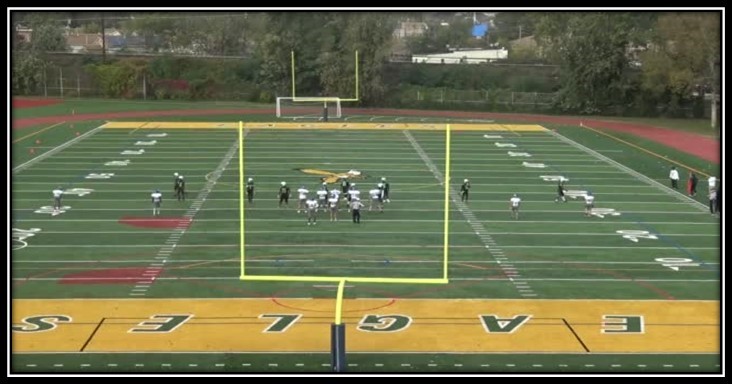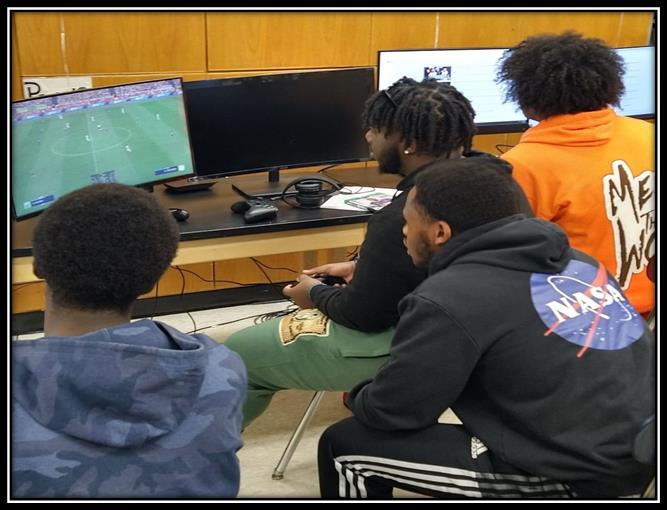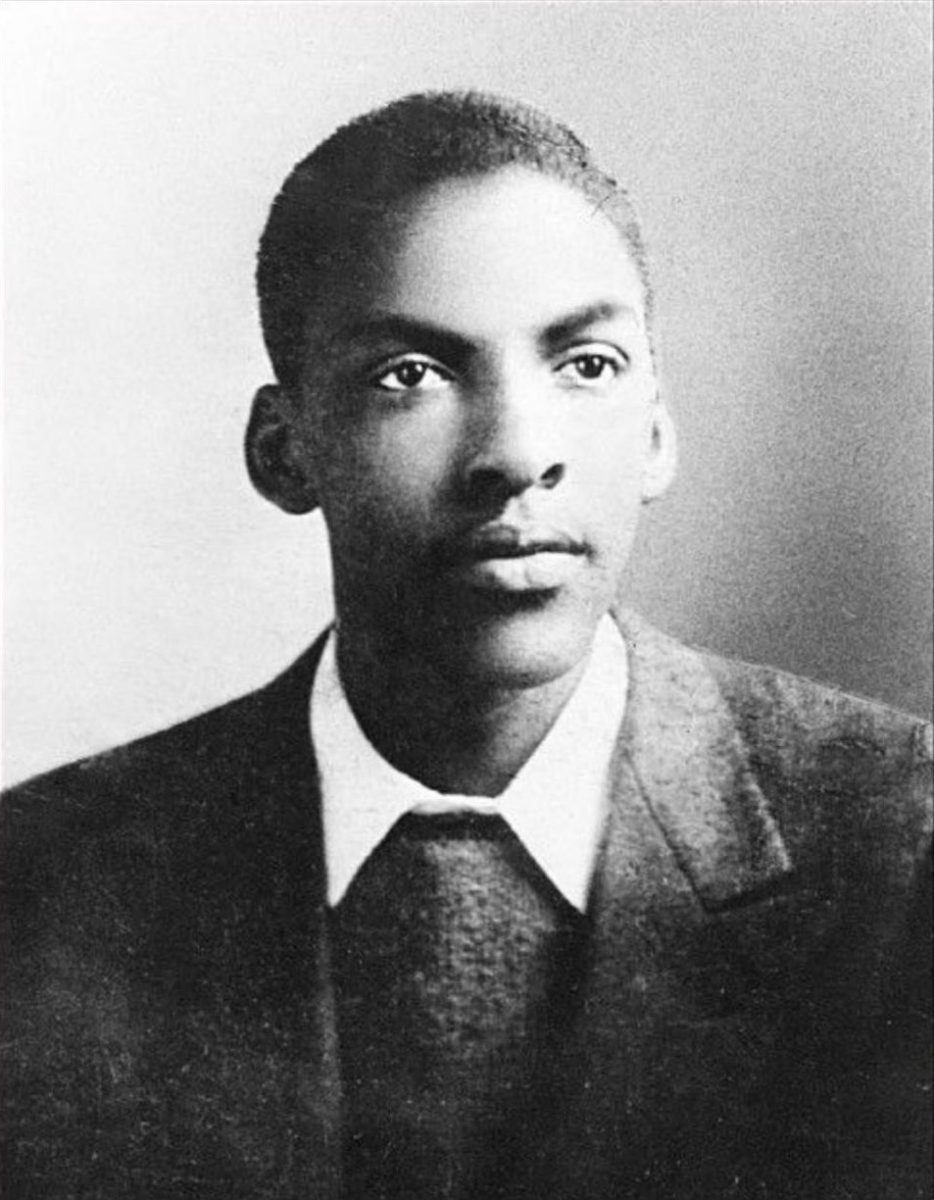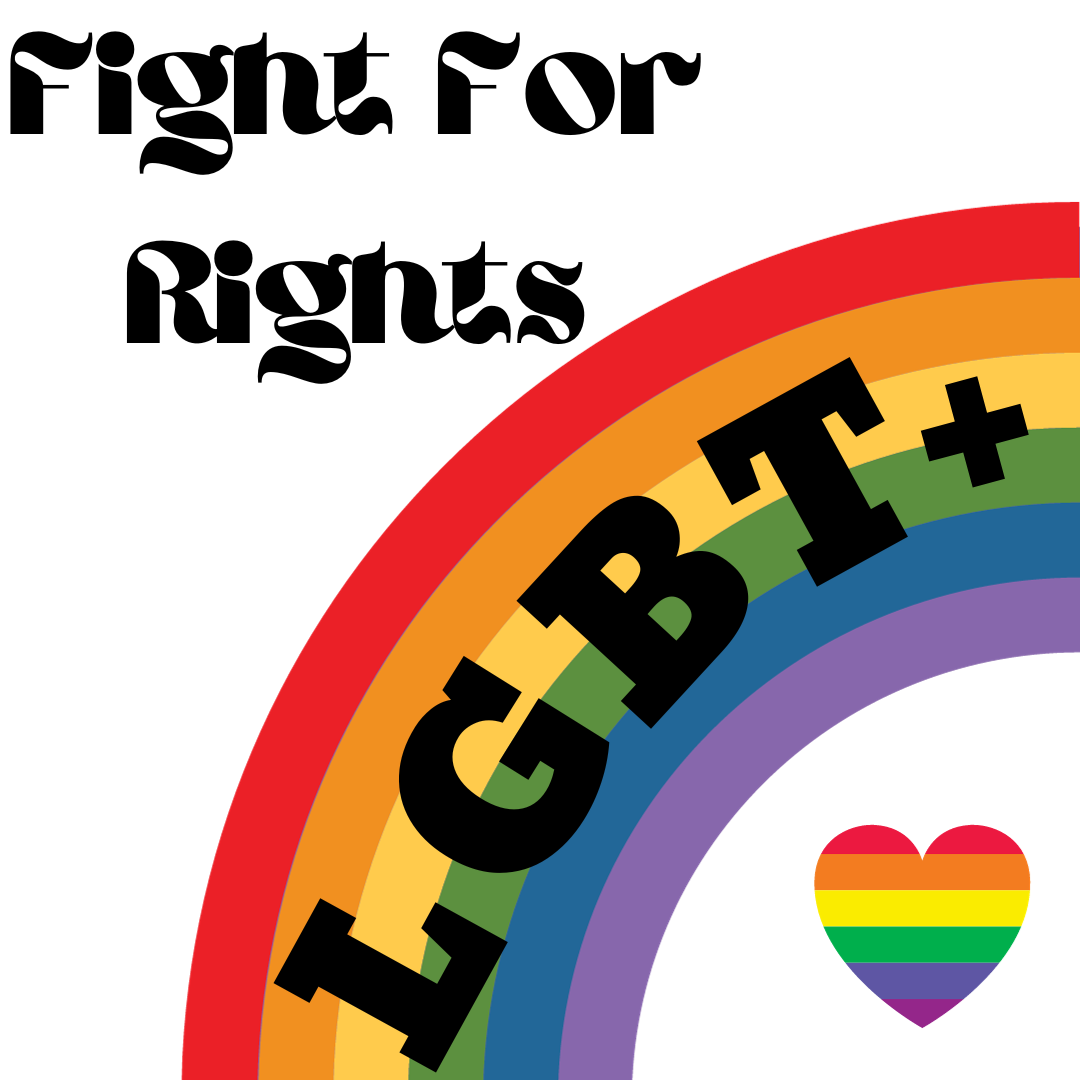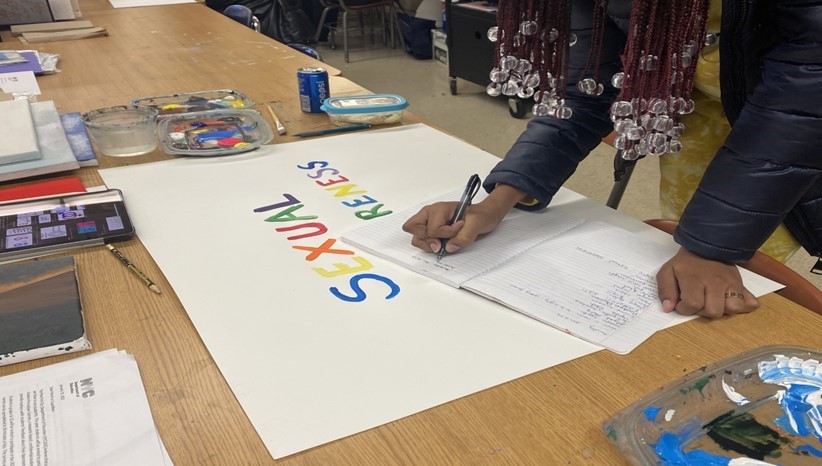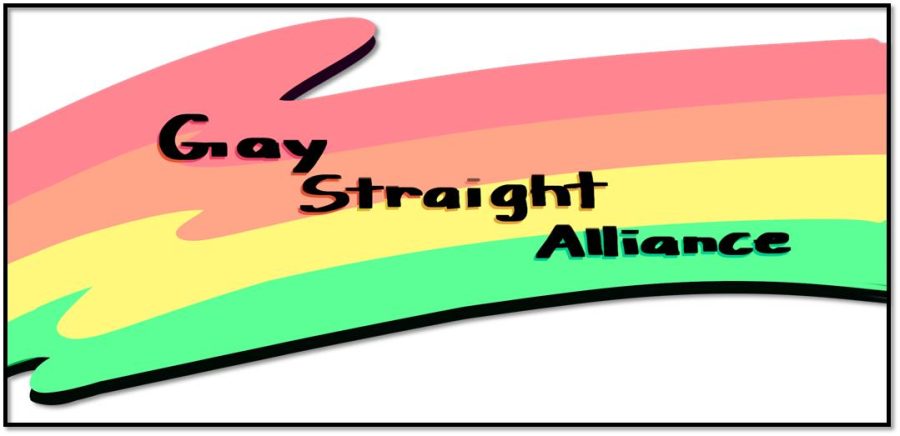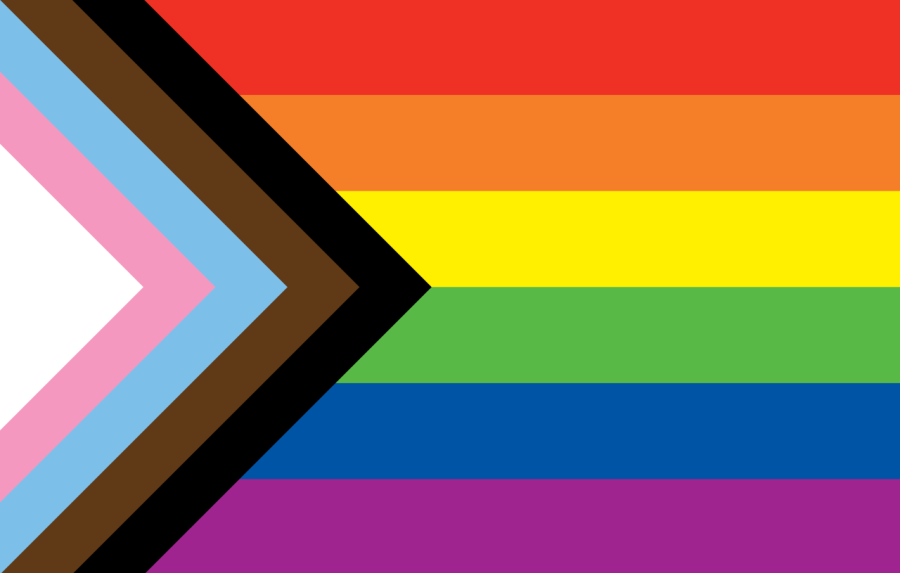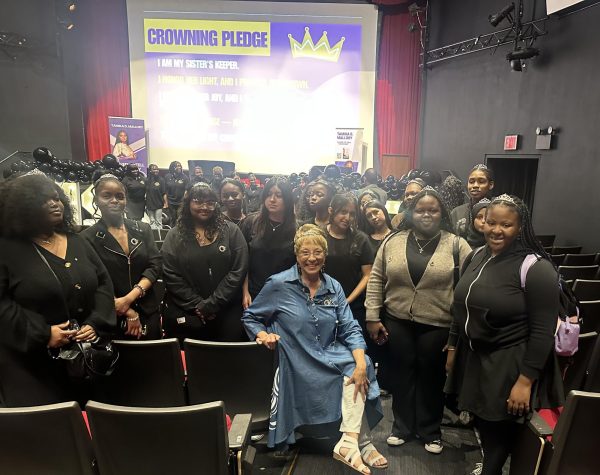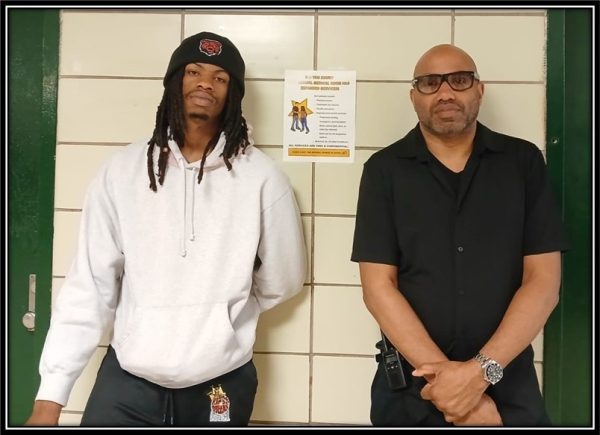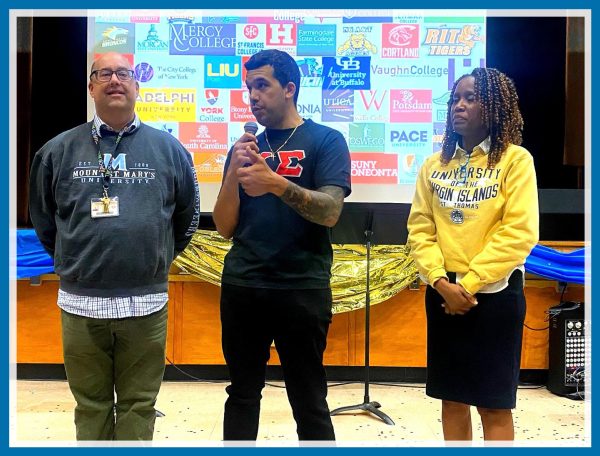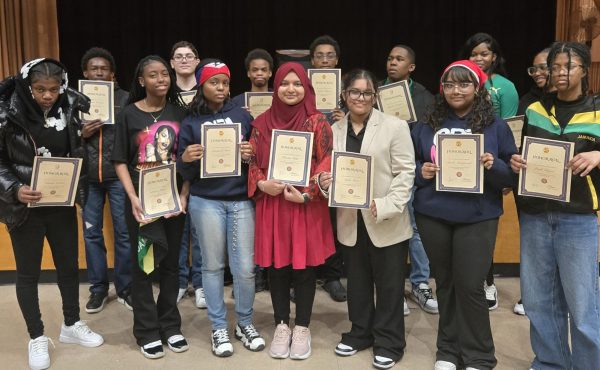War in Ukraine
Takes Toll on Teens
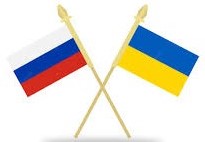
War in Ukraine
Russia- Ukraine Relations
1918– Before World War I ends—a conflict fought by multiple countries and armies over several years—Ukraine declares its independence from Russia. By the terms of the Treaty of Brest-Litovsk, Russia recognizes the independence of Ukraine and its sovereignty on a global scale. Soviet forces later overthrow independent Ukraine, and the Red Army conquer most of Ukraine from January 7- June 16,
1919– However, the army is forced to retreat from most of Ukraine mid-June by advances of the Russian White Army and the Armed Forces of South Russia.
1921– The Ukrainian Soviet Socialist Republic is established, and the following year, Ukraine is absorbed into the Soviet Union.
1932-1933– A famine triggered by the Soviet Union’s Premier Joseph Stalin’s collectivization strategy kills millions ethnic Ukrainians in a region known as the Soviet Union’s breadbasket. This area was given this name due to its fertile fields of wheat. The disaster is known as the Holodomor, derived from the Ukrainian term for starvation.
1939- 1944– The Soviet Union annexes what is now Western Ukraine from Poland and Romania during WWII. Later, Nazi Germany and the Axis powers invade the Soviet Union and occupy Ukraine, which suffers enormous devastation.
1991– Ukraine declares independence from Russia, a move endorsed in a referendum by 92 percent of Ukrainian voters.
1994– Under the Budapest Memorandum, Ukraine gives up its nuclear arsenal in exchange for a commitment from Moscow “to respect the independence and sovereignty and the existing borders of Ukraine.”
2014– Protesters in Ukraine overthrow President Viktor Yanukovych in February, because he had been sympathetic to Russia’s interests. During the revolution, more than 100 people are killed in protests that centers on the main square in the capital, Kyiv, often called the Maidan.
2015– More than 9,000 people are killed and over 20,000 injured in the violence as of Fall 2015. By September, an estimated 1.4 million people are internally displaced in Ukraine, with over 600,000 fleeing to Russia.
The EU Foreign Affairs Council approves conclusions on Ukraine in January, condemning the escalation of conflict and urging Russia to use its clout with the separatists to put an end to their hostile behavior. It also urges Ukraine to accept the International Criminal Court’s full jurisdiction over atrocities committed in 2014 and 2015.
The European Parliament passes a resolution in January 2015 denouncing Russia’s “aggressive and expansionist policy” in Ukraine and urging Ukraine’s government to keep fighting corruption.
2021- Russian President Vladimir Putin states on November 30, 2021, that an expansion of NATO’s presence in Ukraine, particularly the deployment of any long-range missiles capable of striking Russian cities or missile defense systems similar to those in Romania and Poland, would be a “red line” issue for Russia.
Putin requests legal assurances from US President Joe Biden that NATO would not expand eastward or place “weapons systems that endanger us in close proximity to Russian territory.” “If any form of strike systems arise on Ukrainian soil, the flight time to Moscow will be seven to ten minutes, and five minutes if a hypersonic missile is deployed,” Putin says. “It’s just Ukraine and 30 NATO members that decide whether Ukraine gets into NATO,” says NATO Secretary-General Jens Stoltenberg. Russia has no say nor veto.
2022- On January 12, a meeting of the Russia- NATO council is held in the Brussels. NATO will not abandon its “open doors” policy, according to United States Deputy Secretary of State Wendy Sherman. The demands made by Russia are alarmingly high. The US Deputy Secretary of State states that NATO allies would not agree to the Alliance’s inability of future expansion and a return to the late-twentieth-century configuration, which the Russian side insisted on during the negotiations.
Russia’s Deputy Foreign Minister Alexander Grushko states that NATO did not initially claim the “open door” policy that the Alliance now declares, and that if political means fail to prevent threats to Russia’s security, Russia will resort to military action. Russia recognizes the rebels of NATO on February 22, 2022, and sends its army to the region. On February 24, 2022, Russia’s army begins a large-scale invasion of Ukraine.
Beginning of the Russia- Ukraine War
These events mark the beginning of the Russian-Ukraine war. Putin, the president of Russia, announces a “special military operation” to “demilitarize and denazify” Ukraine on the morning of February 24. Minutes thereafter, missiles and aircraft attack Ukraine’s capital, Kyiv, and are quickly followed by a massive ground invasion from various directions. As many should be aware, the Ukrainian and Russian war is occurring right now. However, there are still many teens who are not. But even if they have some knowledge of the conflict, most teens get their information from social media which is not always the best source, because most news pulled from social media apps can be fake news published to gain publicity and “views.”
What’s America Got to do With it?
It’s important that teens watch the news to get reports from credible sources about what’s occurring around them. Especially since this war impacts America and our daily lives. Like Mark Zandi, chief economist at ‘Moody’s Analytics’ says, “ The impact of the Russians invasion on the U.S economy will be on the margins.” Gas prices have increased significantly since the Russian/Ukraine war: gas in New York has almost doubled in price and is expected to increase.
A Day in the Life of a Ukrainian Teen
Ivan Nelson and Bohdana Smith both were in their homes in the city of Chernihiv when the invasion started. Nelson explained he heard the explosions and rushed to look out the window where he saw people running for their lives. Nelson described the crowd as “big” and “chaotic.”
Nelson claimed to have been “running for his life” and was separated from his family. Nelson, who at first didn’t even believe that something like this would happen to him and his family and neighbors, was so appalled that it took him a very long time to grasp the situation at hand. Still, to this day he has yet to fully understand the circumstance he had been forced to encounter.
“Before I wanted to become a registered nurse. I had so many dreams and hoped that I would finish school, and go to medical school,” Nelson says, “But now I don’t even think about my career plans or my dreams, I won’t even be able to graduate young. It still makes me feel sad at times, but now I’ve just grown to accept my reality, so now I just feel empty thinking about my dreams.”
However, he isn’t the only one who developed concerns over the horrific period of time. Bohdana Smith, also a Ukrainian teen, shared that not being able to keep up with her hygienic routine which she followed everyday was her biggest worry. “You know as a girl hygiene means so much, and the fact that I can’t take care of myself is so new to me, and it is very challenging,” Smith says. However, despite these issue, she admits she’s lucky to be alive.
On the morning of the explosions, Smith’s family wanted to stay in because they thought they would be safer inside. However, Bohadana pressured her family and convinced them that if they were to stay put, their house would be blown up with them in it. Luckily, after Bohadana’s pestering, she was able to convince her family to leave the house and look for safety. Not too long after they left, a loud booming sound was heard coming from the area they had just left, and as Smith’s family looked back their hearts sank to their feet. Their home was in fact a target and was blown to pieces.
Teens and Mental Health
Both Bohadana and Nelson expressed that their mental health is not what it used to be as they are falling into deeper and deeper depression each day. One can say that the feeling is like being on a deserted island. They feel as if they’re “dying slowly” and as time goes by they’re losing hope of being rescued. Nelson compares his current state of mind as a “long, slow sense of isolation and drifting off into a cloud of nothing.”
Jacki Rondinella, a therapist based in Forest Hills, Queens, says, “Teens deal with a lot of stressors like school, social aspects, family, and thinking of their future.” She states some short term training that families and teens who suffer from depression can do:
Mindfulness Exercises–focus on being intensely aware of what you’re sensing and feeling in the moment, without interpretation or judgment. Practicing mindfulness involves breathing methods, guided imagery, and other practices to relax the body and mind and help reduce stress.
Grounding Exercises–(things you can do to bring yourself into contact with the present moment–the here and now. They can be quick strategies (like taking three deep “belly breaths”) or longer, more formal exercises (like meditation).
Rondinella also lists some long-term training for battling with depression:
Medication–Talk with your Doctor about a prescription.
Therapy–Work towards locating a therapist if you do not already have one (cognitive behavioral therapy is said to be the gold standard of depression treatment)
Community engagement–Being part of a community can have a positive effect on mental health and emotional wellbeing. Community involvement provides a sense of belonging and social connectedness. It can also offer extra meaning and purpose to everyday life.
Rondinella says there could also be secondary trauma for teens outside of the Ukraine: “Could this happen to me?” or “Could this happen here?” are some of the thoughts that teens outside the war might have. Rondinella attests that mental health signs and symptoms usually start to show up from around 15 years of age through the early 20’s.
Jenny Solan, who is also a therapist located in New York City, explains why good mental health is important in teens’ lives. She claims, “Adolescence is a critical time for acquiring fundamental social and emotional habits for mental health. Learning to control emotions, and building coping, problem-solving, and interpersonal skills are just a few of them. It has the potential to affect many aspects of a teen’s life. Students with poor mental health may struggle in school, with grades, with making decisions, and with their health.”
Solan thinks the best way for parents to protect and care for their children is by accessing their own needs so they can be able to tend to their kids.
What Do QPA Students Think?
Ukrainian teens are heavily affected by this war as school is cut short and they’re robbed of their youth. Witnessing death and all the negative factors and outcomes of this war is traumatizing enough to someone who’s an adult, so it’s twice as challenging for a teen.
Students at QPA couldn’t even imagine what they would think, much less do if a situation like this happened in America. Briana (10th Grade Student) shares her thoughts. “To be honest if something like this happened in America there [would] be a lot of riots and protests prior to the event but emotionally I would feel sad and hopeless,” she says.
Senior Britney-Ann doesn’t even know how she’d feel if she were included in this situation. “ I don’t think I’ll actually know how to feel because I’d feel like there’s nowhere to run,” she admits. “I’d probably just pack my stuff just in case I have to leave my home.” It’s very hard to even try and imagine what you would do in a predicament like this.
Both teens send their regards to the families and individuals who were injured or killed in this ongoing fight. Briana says, “Don’t give up, Don’t lose hope, Don’t stop fighting mentally and physically.”
Britney-Ann encourages teens to remain positive. “ Keep your head up. This isn’t the end of your path, so keep stable so you can move forward with your life when this unfortunate situation is done,” she declares. “ We over here will keep rooting for you guys.”
Stay Vigilant
Each day, there are events, good and bad, occurring all around the world that could have an impact on where you live. As a result, you should consider it your responsibility to keep yourself and your family well informed on what’s happening around the world, because you never know when you or your economy will be affected. Moreover, students’ background knowledge is significantly improved by reading the news, and background knowledge is strongly connected to academic success. When students face new information, the more background knowledge they have, the easier it is for them to form connections and grasp important concepts in the classroom. In short, stay informed, because knowledge is power.
Your donation will support the student journalists of Queens Preparatory Academy. Your contribution will allow us to purchase equipment and cover our annual website hosting costs.



